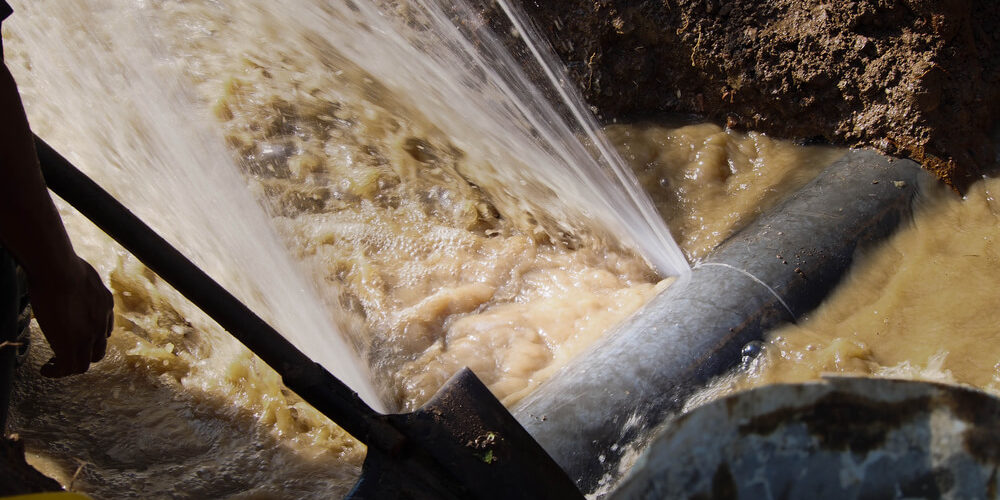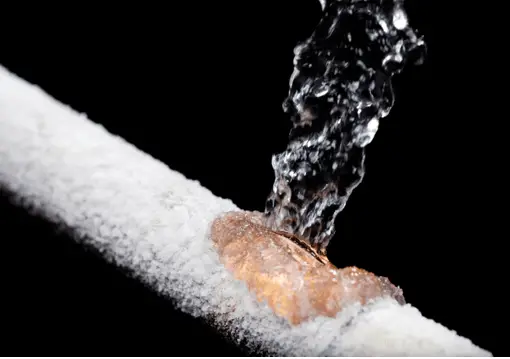Learning the Process Turning Off Your Main Water Line In the Event of a Exploded Pipe
Learning the Process Turning Off Your Main Water Line In the Event of a Exploded Pipe
Blog Article
Are you currently hunting for advice around What Do I Do If I Have A Burst Pipe In My Home??

You need to recognize just how to turn off your main water line if you experience a ruptured pipeline. Do not wait on a plumbing emergency prior to figuring out just how to get this done. Besides, apart from emergency leakages, you will certainly require to shut off your primary water valve for plumbing fixings or if you leave for a lengthy journey. Discover more about it in this mini overview.
Why Must You Shut the Main Line Off?
Acquainting yourself with how your mainline switches on as well as off can conserve you throughout an emergency. For example, when a pipeline unexpectedly bursts in your home, you'll be besieged with panic. Therefore, you can conveniently shut the valve off and also avoid a lot more damage if you recognize what to do. Additionally, closing this off guarantees you do not need to deal with an unexpected flooding in your house.
On top of that, closing as well as opening the shutoffs once in a while guarantees they don't get stuck. It is likewise the very best time for you to evaluate for rust or various other broken connections. Additionally, make it a point to educate other family members on what to do. This makes regular upkeep and also taking care of emergency situations so much easier. You can possibly conserve on your own thousands of dollars out of commission.
Where is This Main Valve Situated?
The major water line supply can vary, so you might need to locate time to find out where it is. Sadly, when your house is obtaining drenched due to a burst pipe, you do not have the high-end of time during an emergency. Therefore, you must plan for this plumbing situation by discovering where the valve is located.
This shutoff valve might look like a sphere shutoff (with a lever-type handle) or an entrance valve (with a circle faucet). Positioning depends on the age of your house as well as the environment in your area. Examine the adhering to common spots:
Must This Constantly Be Shut Off?
Other than emergency situations, repairs, or long holidays, you might not need to turn off the main shutoff. As an example, if only one fixture has problems, you can switch off the branch valve because area. In this manner, you can still make use of water in other parts of your home. For finest results, call a dependable plumber for emergencies.
What to Do When a Pipe Bursts in Your Home
A burst pipe is one of a homeowner's worst nightmares. Not knowing the signs and being unprepared for this plumbing issue can result in more water damage and clean up. Here are the warning signs of a pipe about to burst and the steps you can take if it happens.
Warning Signs for Burst Pipes
Rusty, discolored water with a bad smell Puddles under your sinks Abrupt changes in water pressure A spike in your water bill Clanging noises coming from pipes behind the walls What to Do When a Pipe Bursts
Turn off your water. The sooner you do this, the better. Shutting off your main valve will help minimize the damage to your home.
Drain the faucets. After the water has been turned off, drain the remaining water by opening your faucets. Doing so will help prevent areas from freezing and also relieve pressure within your pipe system to avoid more bursts.
Locate the burst pipe. Look for bulging ceilings, warping and other signs of where the water damage has occurred. Once you locate the pipe, you will be able to determine if it is a small crack that can be patched or a major repair that needs to be dealt with right away.
Call a professional. If you need significant repairs, contact a professional to come in as soon as possible. At Mr. Rooter Plumbing of Oneida, we offer 24/7 emergency service for your convenience.
Document the damage. If you have extensive pipe damage, be sure to take photos of the affected areas so you can document a claim with your insurance. Take close-up photos of the damage and use a measuring tape to show how high the water is. You should also take photos from different angles for a wider picture of the affected areas.
Start cleaning. After you have documented the damage, start cleaning up the water as soon as possible. The longer the water sits, the higher the chance that mold will develop.
https://www.mrrooter.com/oneida/about-us/blog/2020/june/what-to-do-when-a-pipe-bursts-in-your-home/

We were made aware of that report about Steps to Take When a Pipe Bursts through an associate on a different web address. In case you enjoyed reading our article if you please don't forget to share it. Thank you so much for going through it.
Damage control? Ring! Report this page